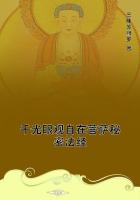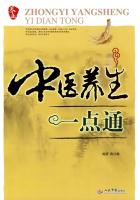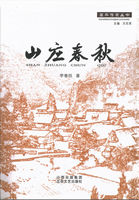That is your doctrine. Now, I say, if this be so, riches are not the object for a community to aim at. I say the nation is best off, in relation to other nations, which has the greatest quantity of the common necessaries of life distributed among the greatest number of persons; which has the greatest number of honest hearts and stout arms united in a common interest, willing to offend no one, but ready to fight in defence of their own community against all the rest of the world, because they have something in it worth fighting for. The moment you admit that one class of things, without any reference to what they respectively cost, is better worth having than another; that a smaller commercial value, with one mode of distribution, is better than a greater commercial value, with another mode of distribution; the whole of that curious fabric of postulates and dogmas, which you call the science of political economy, and which I call politicae aeconomiae inscientia, tumbles to pieces."
Mr. Toogood agreed with Mr. Chainmail against Mr. Mac Quedy, that the existing state of society was worse than that of the twelfth century; but he agreed with Mr. Mac Quedy against Mr. Chainmail, that it was in progress to something much better than either--to which "something much better" Mr. Toogood and Mr. Mac Quedy attached two very different meanings.
Mr. Chainmail fought with Doctor Folliott, the battle of the romantic against the classical in poetry; and Mr. Skionar contended with Mr. Mac Quedy for intuition and synthesis, against analysis and induction in philosophy.
Mr. Philpot would lie along for hours, listening to the gurgling of the water round the prow, and would occasionally edify the company with speculations on the great changes that would be effected in the world by the steam-navigation of rivers: sketching the course of a steamboat up and down some mighty stream which civilisation had either never visited, or long since deserted; the Missouri and the Columbia, the Oroonoko and the Amazon, the Nile and the Niger, the Euphrates and the Tigris, the Oxus and the Indus, the Ganges and the Hoangho; under the over canopying forests of the new, or by the long-silent ruins of the ancient, world; through the shapeless mounds of Babylon, or the gigantic temples of Thebes.
Mr. Trillo went on with the composition of his opera, and took the opinions of the young ladies on every step in its progress; occasionally regaling the company with specimens; and wondering at the blindness of Mr. Mac Quedy, who could not, or would not, see that an opera in perfection, being the union of all the beautiful arts--music, painting, dancing, poetry--exhibiting female beauty in its most attractive aspects, and in its most becoming costume--was, according to the well-known precept, Ingenuas didicisse, etc., the most efficient instrument of civilisation, and ought to take precedence of all other pursuits in the minds of true philanthropists. The Reverend Doctor Folliott, on these occasions, never failed to say a word or two on Mr. Trillo's side, derived from the practice of the Athenians, and from the combination, in their theatre, of all the beautiful arts, in a degree of perfection unknown to the modern world.
Leaving Lechlade, they entered the canal that connects the Thames with the Severn; ascended by many locks; passed by a tunnel, three miles long, through the bowels of Sapperton Hill; agreed unanimously that the greatest pleasure derivable from visiting a cavern of any sort was that of getting out of it; descended by many locks again through the valley of Stroud into the Severn; continued their navigation into the Ellesmere canal; moored their pinnaces in the Vale of Llangollen by the aqueduct of Pontycysyllty; and determined to pass some days in inspecting the scenery, before commencing their homeward voyage.
The Captain omitted no opportunity of pressing his suit on Lady Clarinda, but could never draw from her any reply but the same doctrines of worldly wisdom, delivered in a tone of badinage, mixed with a certain kindness of manner that induced him to hope she was not in earnest.
But the morning after they had anchored under the hills of the Dee--whether the lady had reflected more seriously than usual, or was somewhat less in good humour than usual, or the Captain was more pressing than usual--she said to him: "It must not be, Captain Fitzchrome; 'the course of true love never did run smooth:' my father must keep his borough, and I must have a town house and a country house, and an opera box, and a carriage. It is not well for either of us that we should flirt any longer: 'I must be cruel only to be kind.' Be satisfied with the assurance that you alone, of all men, have ever broken my rest. To be sure, it was only for about three nights in all; but that is too much."
The Captain had le coeur navre. He took his portfolio under his arm, made up the little valise of a pedestrian, and, without saying a word to anyone, wandered off at random among the mountains.
After the lapse of a day or two, the Captain was missed, and everyone marvelled what was become of him. Mr. Philpot thought he must have been exploring a river, and fallen in and got drowned in the process. Mr. Firedamp had no doubt he had been crossing a mountain bog, and had been suddenly deprived of life by the exhalations of marsh miasmata. Mr. Henbane deemed it probable that he had been tempted in some wood by the large black brilliant berries of the Atropa Belladonna, or Deadly Nightshade; and lamented that he had not been by, to administer an infallible antidote. Mr. Eavesdrop hoped the particulars of his fate would be ascertained; and asked if anyone present could help him to any authentic anecdotes of their departed friend. The Reverend Doctor Folliott proposed that an inquiry should be instituted as to whether the march of intellect had reached that neighbourhood, as, if so, the Captain had probably been made a subject for science.
Mr. Mac Quedy said it was no such great matter to ascertain the precise mode in which the surplus population was diminished by one.
Mr. Toogood asseverated that there was no such thing as surplus population, and that the land, properly managed, would maintain twenty times its present inhabitants; and hereupon they fell into a disputation.
Lady Clarinda did not doubt that the Captain had gone away designedly; she missed him more than she could have anticipated, and wished she had at least postponed her last piece of cruelty till the completion of their homeward voyage.















